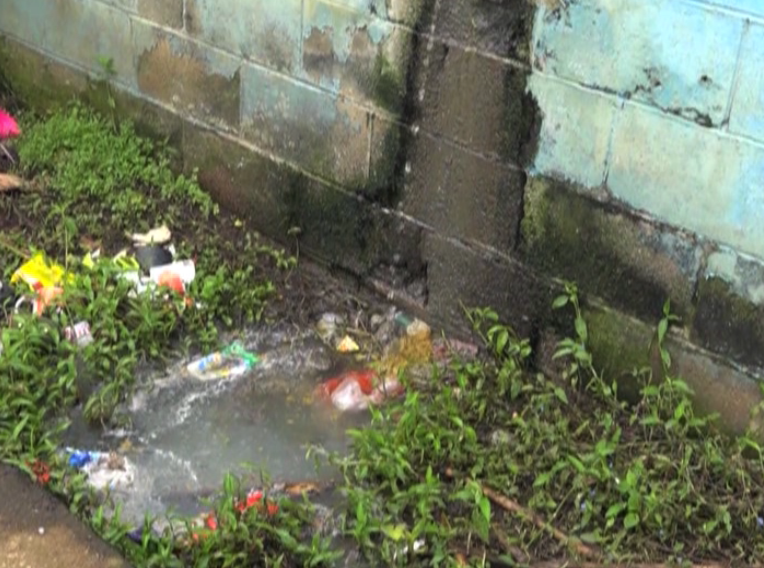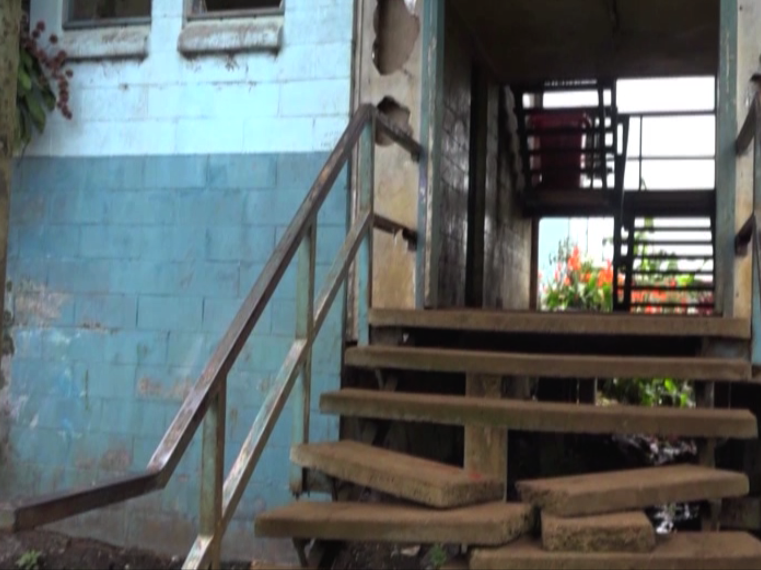Housing for police personnel in parts of Papua New Guinea are fast becoming a concern for those that bunk up in them.
Five police barracks in Western Highlands Province are rundown and need urgent renovation.
There are holes in the windows seals, broken staircases and leaking sewer pipes posing a health risk for police personnel and their families.
EMTV News visited Kimininga and Ela Police Barracks in Mt Hagen to see first hand the situation on the ground.
It is an eyesore and a health hazard for the police and their families, especially those living at the Kimininga and Ela Police Barracks in Mt Hagen.
The leak in the sewer pipes have been spewing out near by.

Human faeces and waste from the shared restroom facilities, are spilling out of the building and thick shrubs have grown around the area.
Due to the blockage in the sewerage pipes, those residing in the barracks have had to resort to building open pit latrines for use.
The Kimininga Police Barracks was initially built as single quarters, to house members of the police force who are single.
Gradually over the years, singles allowed their partners to move in and as time went on, babies were being born at the quarters.
Today the barracks houses a number of families living in squalid conditions, each family has one room to themselves with shared facilities.
All this is a result of a shortage of housing within the police force in PNG.
Like Kiminiga barracks, Ela, St.Pauls, Gomis and Warakum Dog Unit Barracks were built during the colonial era, and have not seen any form of refurbishment or renovation for more than 30 years.
Western Highlands Provincial Police Commander, Jacob Kamiak said the situation at hand does not affect the duty of police personnel who live there.

He explained that while officers live in these unfit conditions, they carry-on with normal police duties daily.
Families of the police personnel told EMTV News that it is a nightmare they face everyday.
They described the stench from the leaking sewerage as unbearable.
However, most of these families have nowhere to go, so they live with it.
And with COVID-19 on the rise in the Province and the Country, these children and mothers are concerned that they may easily contract the virus through community transmission because of their living conditions.


